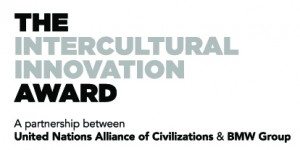Week 1 – Part 2 :
Location: Montgomery, Alabama USA
On Wednesday I had the absolute privilege of visiting the Southern Poverty Law Center (SPLC) in Alabama, one of the leading advocacy organisations fighting hate and bigotry.
SPLC is best known for taking hate groups – like white supremacists – to court and suing them so they go bankrupt and have to cease their activities. SPLC has been extremely successful in doing this, taking out entire US-based hate groups like Volksfront.

The SPLC has three divisions: Teaching Tolerance educates by providing resources to teachers to reduce prejudice, Intelligence Project investigates hate groups, and the Legal department litigates against hate groups.
Given the focus of my Churchill research, I had the opportunity to get an in-depth understanding about Teaching Tolerance and the Intelligence Project during my visit.
First up I met with Teaching Tolerance. For more than 20 years, this program has been providing teachers around the country with information so they are able to teach school students of all ages about accepting diversity (including race, gender, sexuality, ability).
Teaching Tolerance started because the founders of SPLC had already worked for 20 years monitoring and suing hate groups and were getting frustrated that the members of hate groups were getting younger and their crimes were getting more heinous. If they were going to change this dynamic, they would need to rear young people in a way that made them more accepting of the diversity all around us.
Providing resources directly to teachers is a scaleable and sustainable way to operate. Teaching Tolerance started out as a print magazine (which you can now download as an e-magazine) and has since grown to provision of lesson plans and film kits. The program is now launching a full curriculum and anti-bias framework that has taken three years to create.
The anti-bias framework is impressive. In Australia, we tend to go for the “easier” domains of discussing identity and diversity, which are only the first two areas of Teaching Tolerance’s framework. They continue the work further by also addressing justice and moving to action. I think our practice in Australia could certainly be improved by incorporating the idea of “racial justice” and “racial action”, not just “harmony” and “anti-racism” so that it doesn’t become all talk and tokenism without effective remedies.

Next up I met with the Intelligence Project. This program collects information about extremists to inform law enforcement – and the SPLC’s own lawyers – about perpetrators of hate-motivated violence and those that have the potential to perpetrate hate crimes.
They provide police with the Intelligence Report – a magazine profiling individuals and groups – as well as short videos that can be shown at roll call, and daily Hate Watch blog updates.
As you may know, All Together Now runs the only not-for-profit program in Australia targeting far right extremists. So understanding what is involved in this type of work, I find the depth and thoroughness of the Intelligence Project’s approach and the way they communicate the message to police very impressive.
Of course there is often a price to pay for doing such work. As it states on SPLC’s website:
Our headquarters in Montgomery has been the target of numerous plots by extremist groups, including a firebombing that destroyed our offices in 1983. Several dozen people have been sent to prison for plotting against [our CEO] or the SPLC.
As you would expect, the SPLC’s offices have very tight security!
What has stood out for me after these two interviews is that the Southern Poverty Law Center doesn’t just point at the problems, but they also offer very practical solutions. They’re proactive and credible. They make it easy for the country’s teachers and police to stay up-to-date on reducing prejudice and hate because they’re good communicators. And they’re responsive to their stakeholder’s needs – both teachers and police.
So next stop on the tour is New York! I’ll be meeting with a handful of organisations which each have a very different approach to racism prevention … stay tuned!


